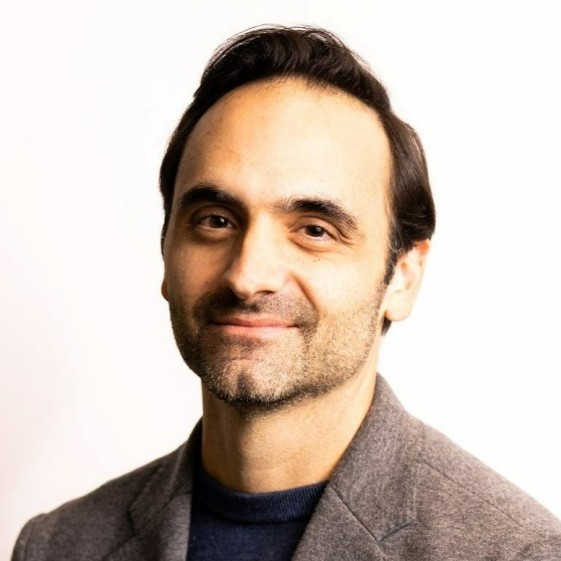This paper helps FinOps teams better understand what a FinOps champion program is, how it can benefit an organization, how to find and build effective FinOps champions, and how to set goals and measure program success.
Why a FinOps champion program might be of interest to your organization:
If so, what you might really need are local FinOps champions. In order to get them in place and working, you’ll also need an effective FinOps champions program.
This paper is particularly directed at FinOps leaders and senior leadership which are contemplating the creation of a FinOps champion program. Anyone interested in standing up a FinOps practice, contributing to the success of a FinOps practice, or the factors that contribute to its effectiveness and success may also find this guidance helpful.
FinOps champions are individuals within your organization who have FinOps-adjacent roles (people working within the Finance, Engineering, ITAM, or other teams) and have been selected to participate in a formal FinOps champion program. As ambassadors of FinOps, they undertake specific responsibilities outlined by the program. These champions leverage their expertise within their respective disciplines to drive the development of a FinOps culture, significantly amplifying the influence of a centralized FinOps team.
A FinOps champion program can be an effective tool, particularly in large or complex organizations, to build a culture of accountability, while providing the champions themselves with additional career opportunities and support. The FinOps lead and central FinOps team are inherently champions of FinOps, coaching people in the FinOps champion role.
To derive the maximum value out of this reading, the below prerequisites are recommended:
It is considered best practice to tailor your FinOps champion program to the needs and goals of the organization. Therefore, as there are many varied implementations of a FinOps champion program, the benefits they generate also vary. Below is a list of common benefits stemming from FinOps champion programs.
Cultural Shift Driver: Promoting the cultural transformation FinOps requires can be challenging with a small, designated FinOps team. The FinOps champion program offers a valuable solution to empower individuals throughout your organization to become champions of this shift, ensuring its success and long-term sustainability.
Enhanced Collaboration: FinOps champions act as a liaison between distributed teams and the central FinOps hub which provides the means for improved communication and increased collaboration. This creates a bi-directional flow of communication on FinOps best practices and optimizations and facilitates a faster removal of impediments to goals. In large organizations, it may also help in connecting together technical SMEs having specific domain knowledge on FinOps optimizations.
Improved Cost Optimization: By spreading the responsibility of cost optimization across the organization, the FinOps champion program helps achieve better overall cost savings in the cloud. Optimized cloud usage at the departmental level collectively contributes to significant savings for the organization as a whole.
Financial Transparency: With FinOps champions facilitating cloud cost management at the local level, financial transparency is enhanced. Team members gain visibility into cloud spending and can align their usage with budgetary constraints. Champions make sure that team members understand what materials are available to them and which will allow them to self-serve.
Localized Expertise for Actionable Insights: By assigning FinOps champions to specific applications, departments, or lines of business, organizations can benefit from individuals who have in-depth knowledge of their respective areas. These champions can better understand the unique cloud usage patterns, requirements, and challenges of their domain, leading to more effective cost optimization strategies such as improved discovery, exposure and execution to deliver cloud optimization.
Increased Accountability: Having FinOps champions helps to foster a sense of ownership and accountability for cloud costs within each business area. Team members become more aware of how their actions impact the budget and are motivated to make cost-effective decisions.
Informed Decision-Making: The program empowers FinOps champions to be involved in financial decisions within their domains. They can participate in budget planning and provide valuable insights to support strategic cloud spending decisions such as the purchase of commitment based discounts.
Overall, a FinOps champion program within a hub and spoke model enables organizations to optimize cloud costs more effectively, promote financial responsibility at various levels, and foster a culture of cost-consciousness throughout the enterprise. However, ensuring you tailor the program to the ability and needs of the organization will be a determining factor of program success as there are many (successful) variations of a FinOps Champion program. Having a champion program is beneficial no matter the FinOps maturity of an organization.
Human resources are a critical factor to the success of your FinOps champion program. You must select the right people and ensure they are allocated to appropriate tasks based on their knowledge, skills, and availability. An effective FinOps champion should possess a combination of technical expertise, financial acumen, and interpersonal skills. They should be passionate about FinOps, proactive, detail-oriented, and have a strong understanding of cloud services and the organization’s structure and costs.
Additionally, they should be able to communicate effectively and work collaboratively with both technical and non-technical teams and possess a good internal company network, or be able to develop one. Consider looking for the following in potential champion candidates:
Willingness to Collaborate: Collaboration is key, as champions will work with cross-functional teams to implement cost optimization strategies.
Communication: Champions need to effectively communicate financial insights and recommendations to various stakeholders, including technical teams, management, and finance. Strong presentation skills are essential.
Analytical Skills: They should be able to analyze cost data, identify trends, and make informed decisions based on data-driven insights.
Proactive: A champion helps promote approved FinOps practices and tools that enable teams to proactively identify cost-saving opportunities and efficiency improvements.
Problem-Solving: They should be adept at troubleshooting cost-related issues and proposing effective solutions.
Relevant Knowledge & Certifications: Effective champions grasp the basics of cloud and have practical familiarity with at least one cloud service provider (CSP). They also understand cloud billing mechanics and cost & usage billing data. Certifications, such as those provided by the FinOps Foundation and CSPs, can be used in part to examine relevant knowledge. Where needed, organizations may choose to incorporate training and certifications into their champion programs.
When planning a FinOps champion program, it is important to decide what the champions are going to do as responsibilities vary greatly from program to program. Organizations which have completed a FinOps Assessment may look to leverage their champions program to help in making strides towards the goals identified through the assessment.
Listed below are some of the major activities a FinOps champion may participate in with coordination from the central FinOps team. This is not intended to be prescriptive, but rather provide some direction that you can tailor to fit your organizational needs.
The champion program should be built with long-term maintenance and growth in mind. This means careful consideration of ongoing communications plans, roles and responsibilities, how to manage the transition to different FinOps maturity levels (Crawl to Walk to Run), and so on. The program should not be considered a one-off effort or short-term project; thus careful consideration is needed to ensure the work is ongoing and sustainable.
The champion program needs to make sense organizationally, align with the company’s goals, and reflect the organization’s FinOps maturity. The central FinOps team will be responsible for overseeing the program.
The champion’s work should be a logical extension or addition to their current duties and not be seen as a distraction or taking away from their full-time job. A champion’s role should be clear organizationally in terms of what constituency groups there are expected to interact with and/or represent to the FinOps team. This will ensure any overlap or crossover between champions is identified, so it can be managed or eliminated.
Executive support is paramount for the successful implementation of FinOps within an organization; likewise it is important for the success of a FinOps champion program.
When top leadership champions a project, it not only allocates the necessary resources and prioritizes the initiative but also sends a clear message throughout the organization about the importance of the FinOps champion program. This endorsement can be instrumental in driving a FinOps culture shift, as employees often look to executive cues to determine their own engagement and alignment with new directions or strategies.
It is important to track the progress of your champion program as it works toward achieving your goals. Therefore, it’s paramount to establish clear, measurable objectives for each activity, ensuring that they are tailored to your organization’s specific needs and directly align with your broader goals and aspirations.
| Goal & Description | Example |
| Cost management performance/KPIs: The most objective and straightforward indicator of success lies in measuring and analyzing the performance of cloud cost management, especially within areas of the organization directly influenced by a champion program or a specific champion. | e.g. Introduction of cost management KPIs across 10 services within 6 months. |
| Engagement: Engaging stakeholders to drive adoption of FinOps practices is among the most critical roles a champion can play; thus measuring and tracking engagement (be in touchpoints, responses, or some other method) is a key gauge of success. | e.g. 20% increase of FinOps practices in a 6 month period. |
| Training: FinOps training and/or certification sign-ups can be relatively easy and straightforward to track if one of the goals of your champion program is to drive FinOps education among stakeholders. | e.g. 5 New FinOps Practitioners, 5 training programs with 30 people trained by the end of the year. |
| Maturity level: Increase the level of maturity within one or more of the FinOps capabilities. | e.g. Crawl to walk in a 6 month timeframe |
Progress visibility for a champion program can be implemented in much the same way as for any centrally-driven change program. The success of the reporting might be different from one firm to the next, depending on the choices made.
Questions to consider include:
Rolling out a champions program should be within the means of any firm or enterprise that has already committed itself to the cloud. However, there are potential areas that may require additional investment. Consider the following examples:
Time: Champions may need to dedicate time that would otherwise be spent on other tasks. If your team utilizes timesheets, determine whether champions require new time codes or if the central team needs specific codes for supporting champions.
Training: If a new champion lacks certification, you might want to allocate funds to enable them to take an initial persona-based certification exam.
Infrastructure and Tooling: While there might not be extra costs for standard office or workplace productivity tools, consider whether additional tools such as data analytics platforms like PowerBI or third-party vendor tools are necessary to support champions or the program.
Events: Hosting social events can foster connections and conversations that might not occur otherwise. Decide whether it makes sense for champions to organize regular social meetups, and if so, consider whether they should be in-house, offsite, or conducted online.
Gamification may not suit every individual or organization, and the incentives to encourage someone to become a champion may differ from those aimed at further enhancing their role once they’ve already taken on the responsibility. As discussed elsewhere, the ideal champion is one that has certain internal drives in place – broadly generous, enjoy connection, ambitious about growth, take your pick.
For this reason, the most effective incentives are typically those that align directly with individuals’ internal motivations. For instance, if champions host training drop-in sessions, you could consider rewarding them by sponsoring their next certification or providing them with extra personal study time. Similarly, if they organize meetups or contribute to charity work, you might offer them additional time off to support these endeavors.
Continuous improvement in IT programs is pivotal for enhancing efficiency, reducing costs, and fostering innovation. It involves the systematic evaluation and optimization of processes and operations to ensure they are as effective and efficient as possible. Activities such as regularly scheduled reviews, retrospectives, feedback analysis, and goal tracking are integral to adapting and refining the program. Through these activities, organizations can adapt to changing requirements, mitigate risks, and capitalize on emerging opportunities, ensuring sustainability and competitiveness in a dynamic landscape.
While the aforementioned elements help to ensure the success of a FinOps champion program there are also quite a few things you should look to avoid to ensure the long term success of the program.
After reading this paper, you should understand how FinOps champions can help your central FinOps team be more effective in spreading FinOps culture and processes within your organization. We’ve shared the benefits, traits, and other key information for a successful FinOps champion program to help get you started!
We’d like to thank the following people for their contributions to this asset:










We’d also like to thank the following supporters: Amit Doshi and Michelle Dupuis.